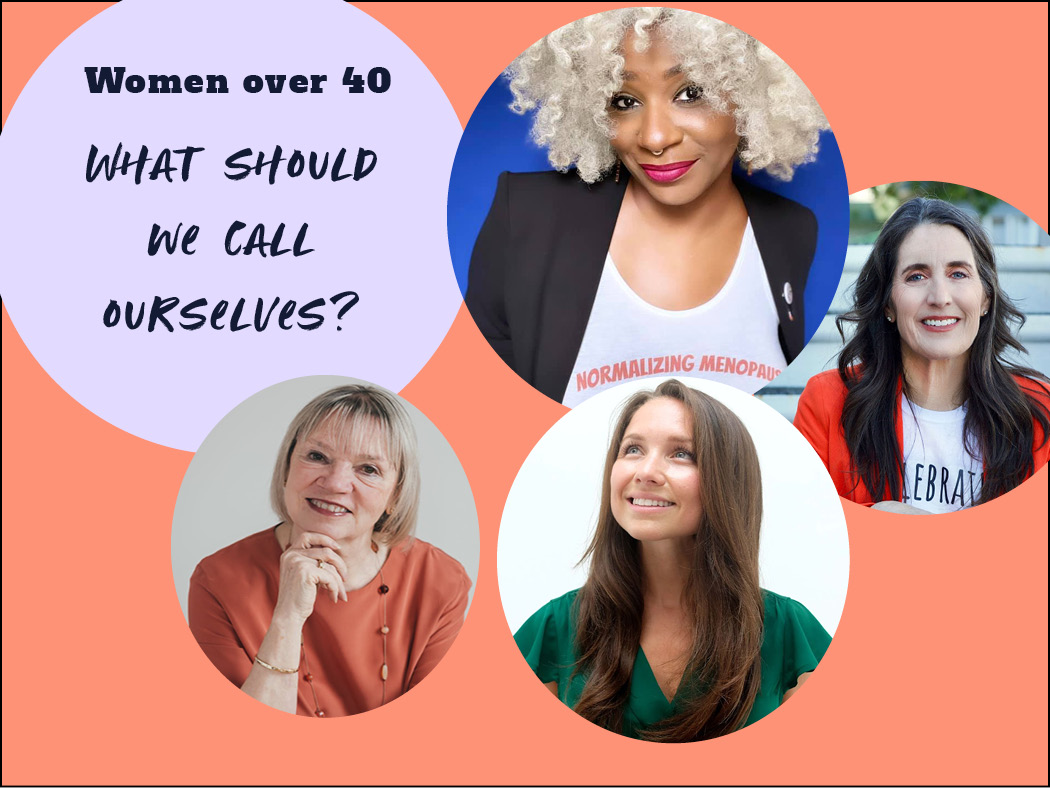
What should we call middle-age women — older, midlifer, 40+?
In the last several years, our culture has seen a rise in blogs, influencers, businesses, communities, and organizations welcoming and celebrating women in their middle years.
Still, as two women leading entities in this environment, we’re grappling with how to talk about women older than 40 in language that feels empowering. So much of the language out there seems to carry negative undercurrents (seasoned, mature, old?) or boxes the world of the 40+ woman into an age bracket, which may or may not have anything to do with the life stage she’s actually living. After all, this woman could be a CEO or retired, a mom or grandmother, changing careers or moving to a new country.
Are we, as a society, reaching a moment when women are more confident about saying we are “over 40, hear me roar”? Does the number even matter?
We set out to get to the bottom of this by asking fellow industry leaders to answer this question: What should we call middle-age women? In part 1 of our Call & Response series, we hear from Omisade Burney-Scott of Black Girl’s Guide to Surviving Menopause, Stephanie O’Dell of Celebrate The Gray, Natalie Waltz of Tabu, and Susan Douglas, a professor and author of multiple books.
What do you think? Share your thoughts in Comments at the end of this post.
— Rachel Stevens & Amy Cuevas Schroeder
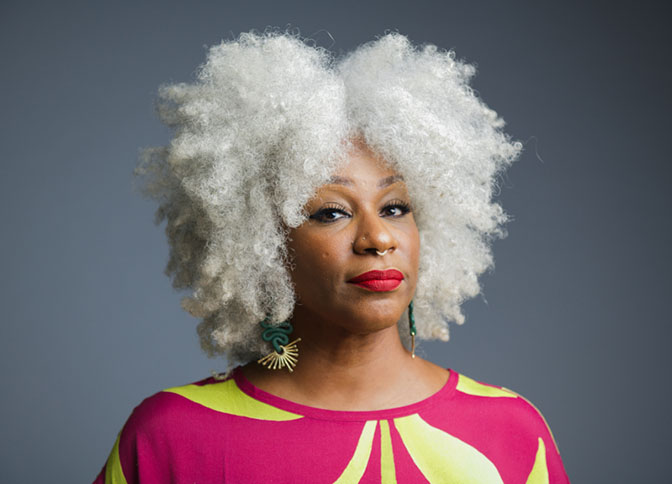
Omisade Burney-Scott
Founder, Black Girl’s Guide to Surviving Menopause
@Blackgirlsguidetomenopause @omisadeburneyscott
I actually think each woman, woman-identified or gender-expansive person over 40, gets to decide for themselves what language they want to use to identify or reference themselves. We live in a society that’s really good at creating messages about groups of people or labels. I think that takes the power away from the individual or the group to be able to name themselves, claim their own identity, and tell their own story.
The best place to start is to ask the person. For example, I like the term midlife because it feels accurate and affirming of where I am at 55.
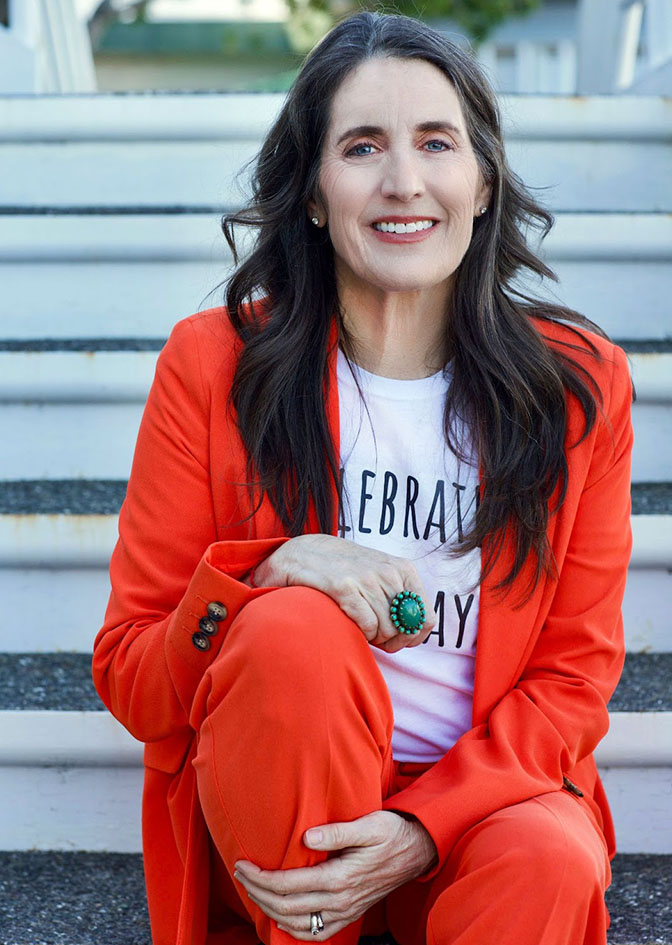
Stephanie O’Dell
Founder, Celebrate The Gray, representing 50+ women
I use the term older. We’re all getting older every day — I don’t view it as a negative word. I just turned 60 and am thrilled to tell people how old I am because I feel I am breaking out of the stereotypes of what 60 can look like, especially for a woman. I started Celebrate The Gray in my 50s and had to ask for a lot of help, which I got from many, many women.
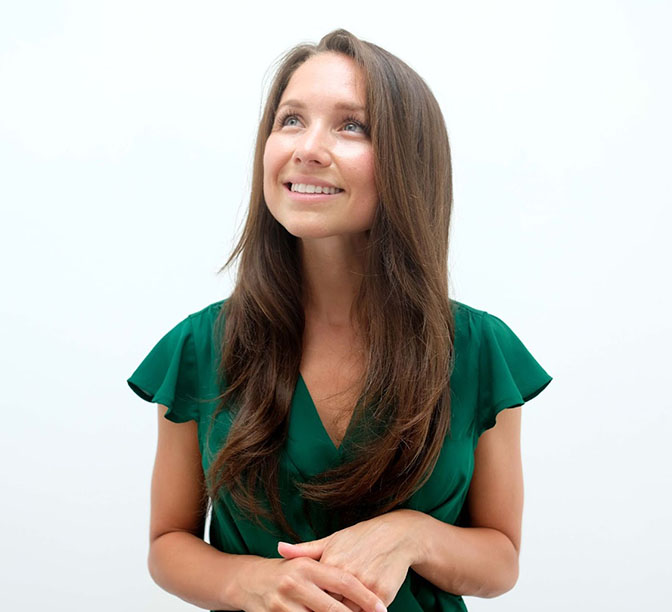
Natalie Waltz
Founder, Tabu, celebrating sexual wellness as we age
To me, the answer is pretty simple. I refer to women 40+ as women. Brands don’t feel the need to qualify me as a “millennial” in their marketing or my sisters as “Gen Z.” I believe the most empowering way to talk to and about women is to not center the conversation around our age, but rather focus on language that speaks to our experiences, interests, and needs.
At Tabu, this is something we learned over time specifically as it relates to “post-menopausal women.” Technically, we’re considered post-menopausal from the one-year anniversary of our final period on. Marketing to a 65-year-old woman as “post-menopausal” is like marketing to a 32-year-old as “post-pubescent.” As a marketer and a consumer, I’m gonna go ahead and say that’s a poor way to get my attention. Instead of labeling all women over a certain age, we’re getting more specific about what she’s experiencing in an effort to build a stronger relationship between her and our brand.
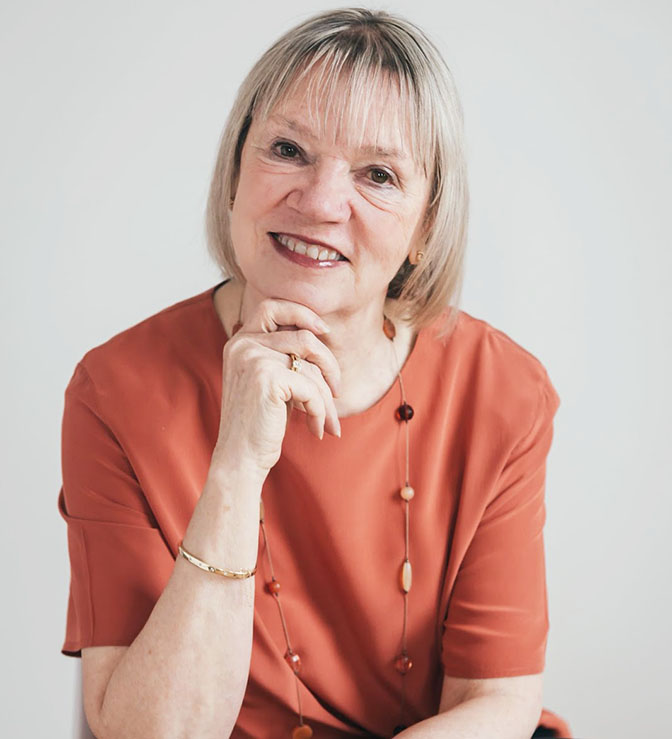
Susan Douglas
Catherine Neafie Kellogg Professor, The University of Michigan
Author, In Our Prime
My goal is to drive a stake into the term senior citizens. Like people under 65 are junior citizens? And clinging to the term like barnacles are so many negative associations: entitled, greedy, decrepit, worthless, grumpy, forgetful, etc.
Frankly, I’m fine with older women. I’ve jokingly used the term vintage female to describe myself, hoping for the fine-wine analogy, but then some friends say what they think of is a used clothing store! I also think elders has dignity to it, and conveys wisdom and can evoke respect. But I think we should own older. We ARE older and there’s plenty that is positive about that!
What language do you prefer when it comes to talking about people 40+?
Share your thoughts in comments below.
Sorry, the comment form is closed at this time.

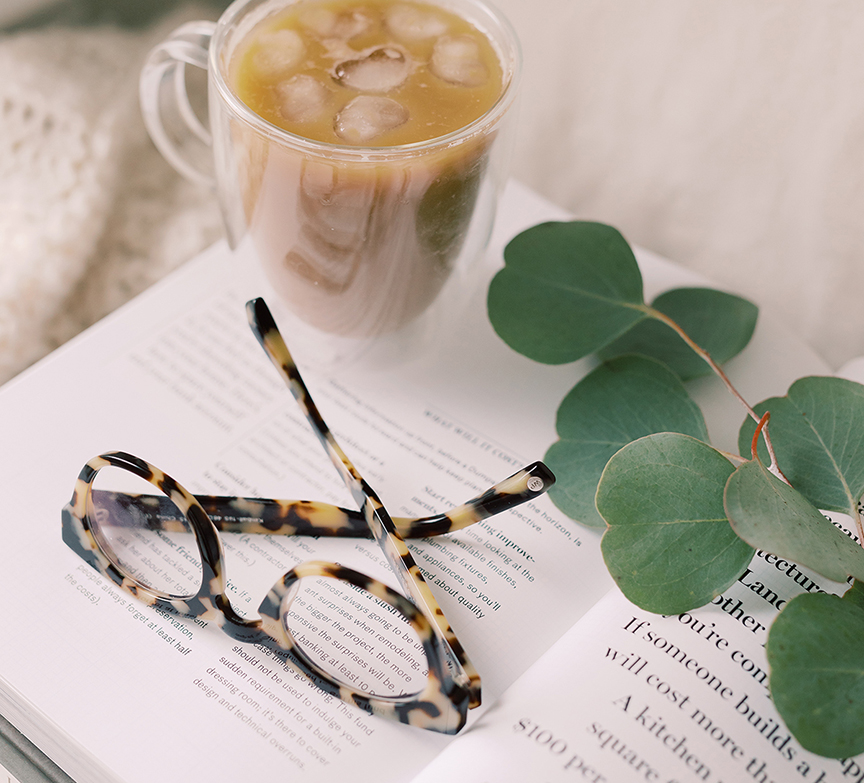

Christine
Great article! Growing older is a privilege denied to many. I’m ok with whatever.